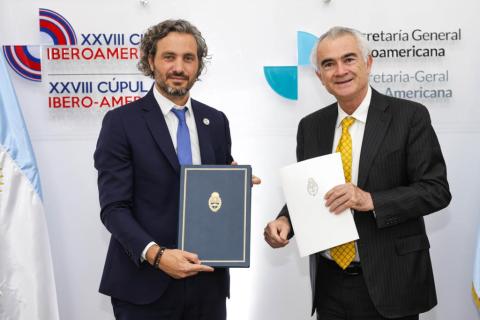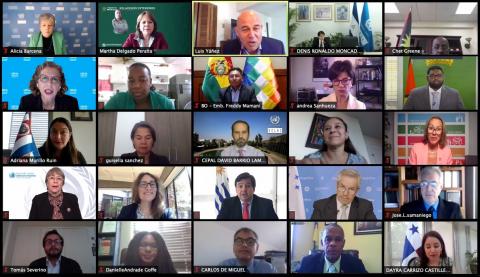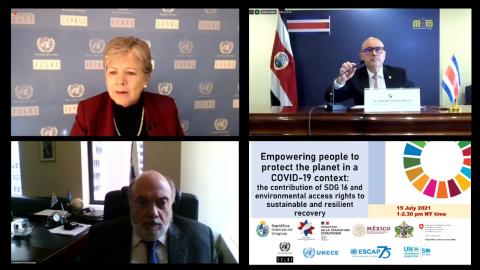Announcement
The newly launched website of the Escazú Agreement Committee to Support Implementation and Compliance provides a gateway for Escazú Agreement Member States and the public to request support to implement the Agreement and report instances of non-compliance, including a communications platform. This initiative aims to enhance monitoring and follow-up procedures while promoting transparency and engagement among stakeholders. It facilitates the process for submitting communications, checking their status and reviewing past communications in the communications repository.
The Escazú Agreement, formally known as the “Regional Agreement on Access to Information, Public Participation and Justice in Environmental Matters in Latin America and the Caribbean” was adopted in Costa Rica in 2018. The agreement has been signed by 24 countries and has 16 Parties. It is a legally binding treaty to enhance environmental protection. Its overarching goal is to ensure that every person enjoys the right to a healthy environment and to sustainable development through access to information, public participation and access to justice. It is also the first treaty in the world to include specific provisions protecting environmental defenders.
This new Committee website and its communications platform were launched during the fourth meeting of the Conference of the Parties (COP 3) to the Regional Agreement on Access to Information, Public Participation and Justice in Environmental Matters in Latin America and the Caribbean in Santiago, Chile in April. It complements the Observatory on Principle 10, the treaty’s clearing house providing an overview of relevant and key references on access rights applicable to the countries of the region. This includes provisions and other information of interest that the constitutions, laws, regulations, plans, strategies and national policies of the 33 countries of Latin America and the Caribbean.



